Over the summer, team members from STFC Technology Department’s National Microelectronics Support Centre delivered two ‘summer schools’ to delegates from the UK Particle Physics Community.
Advanced microelectronic systems are often at the heart of many scientific experiments (including the LHC at CERN), capturing, filtering, and processing data for subsequent analysis. Many of these systems are based around custom algorithms implemented directly in electronics hardware within Field Programmable Gate Arrays (FPGAs).
These systems are incredibly complex but all start with a description of the circuit implementing the algorithm in a specialised Hardware Description Language such as VHDL.
The summer schools, fittingly named “VHDL to FPGA basics”, were aimed towards members of the particle physics community with no prior experience in electronics or hardware design. Demand for places from the UK Particle Physics community meant that two summer schools were arranged – the first for PhD students and a second for Lecturers and Researchers.
Over the 3½ days of each summer school, the lecturing team comprising Thomas Mountney, Mark Willoughby, Clive Holmes and Kwan Cheung taught PhD students, Lecturers, Researchers and internal RAL staff members the basics of VHDL and circuit implementation within FPGAs.
In total over the two summer schools, 30 people attended from 12 different UK universities and RAL.
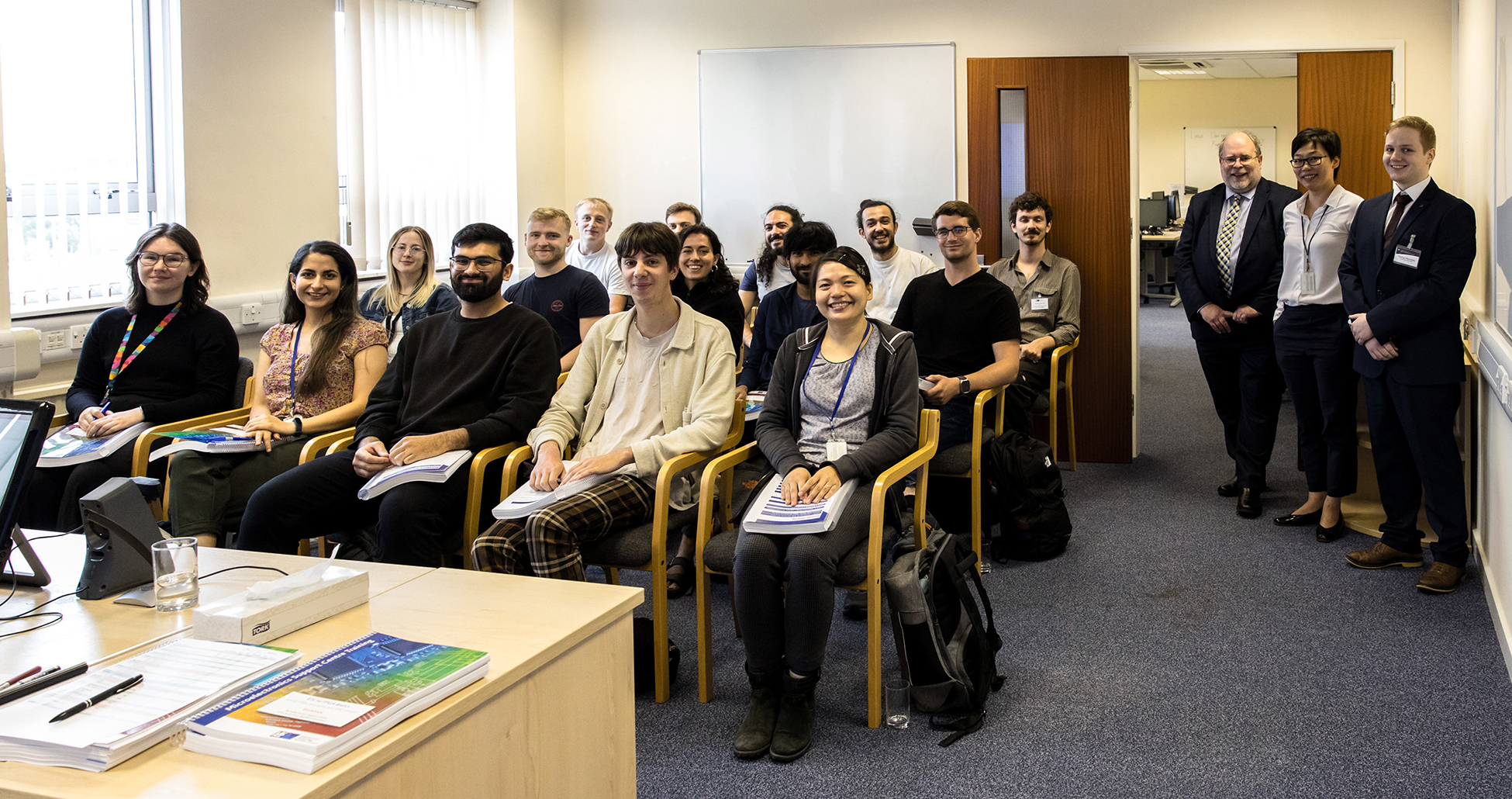
VHDL to FPGA basics summer school for particle physics PhD students - 11th to 14th July 2023
VHDL to FPGA basics summer school for particle physics lecturers, researchers, and RAL staff
- 25th to 28th July 2023
Funding obtained by Ian Tomalin of the STFC Particle Physics Department from a UKRI summer school grant allowed the training to be delivered to delegates free of charge.
Upon arrival, delegates were given a short introduction to RAL and the important science that takes place on-site.
Afterwards, through a combination of lectures and hands-on practical sessions, delegates began describing simple logical circuit blocks within VHDL.
As the course progressed, delegates found themselves coding more complex circuits and developing the associated test-benches to verify the functional operation of the design.
Once delegates had gained basic proficiency with circuit development in VHDL, they then took the plunge into the FPGA design flow and used AMD Vivado to implement the design within a physical FPGA as part of a hardware prototyping system.
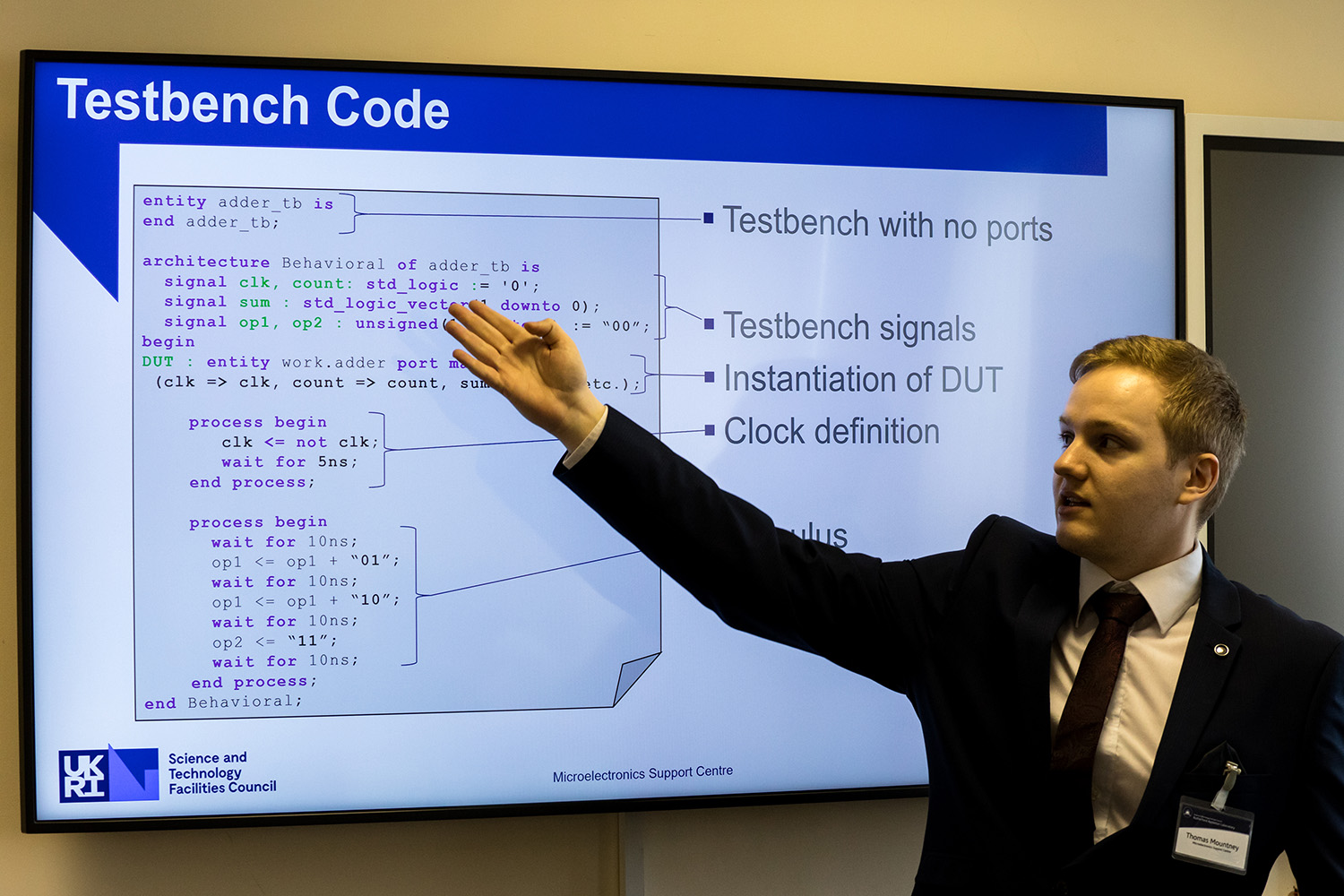
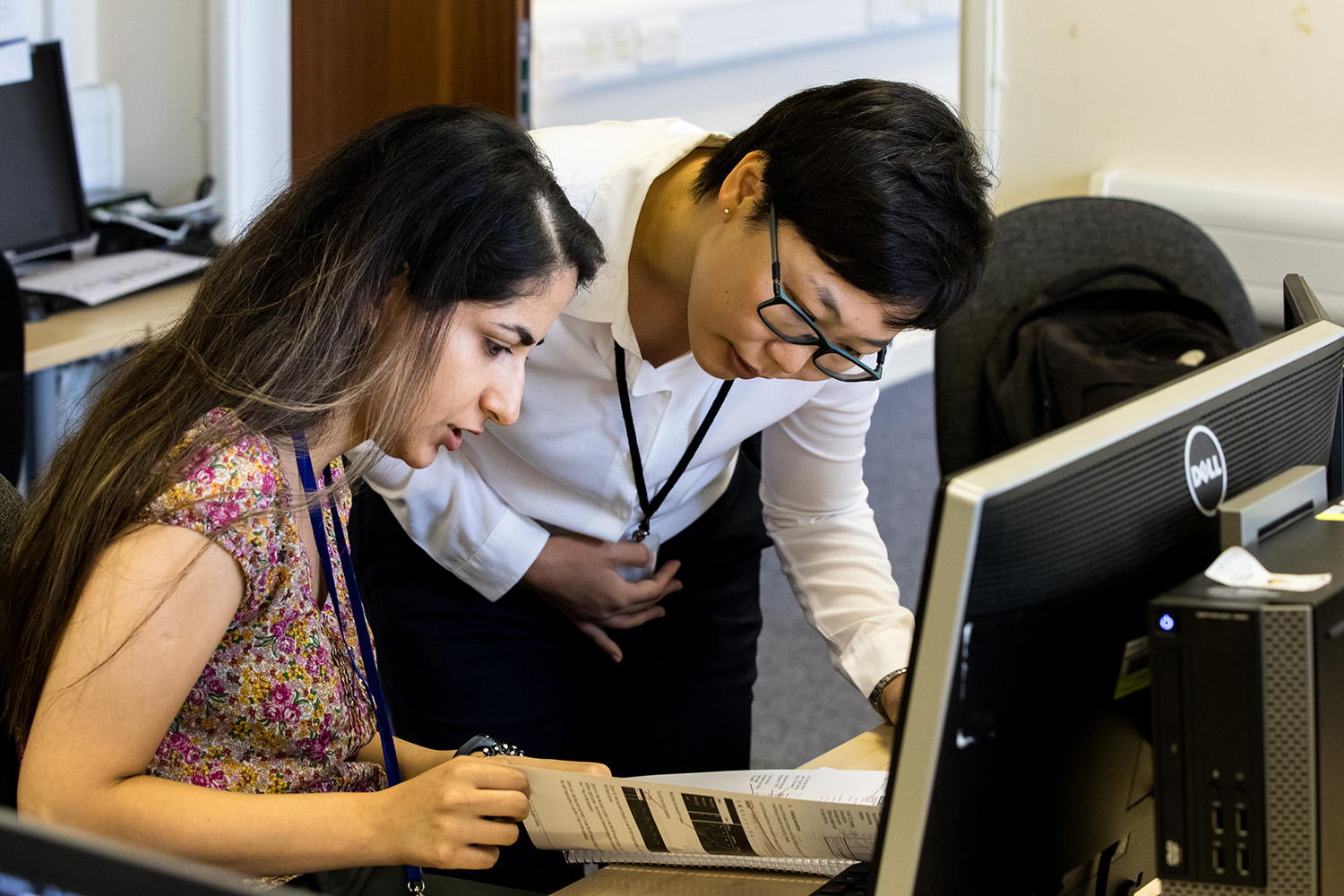
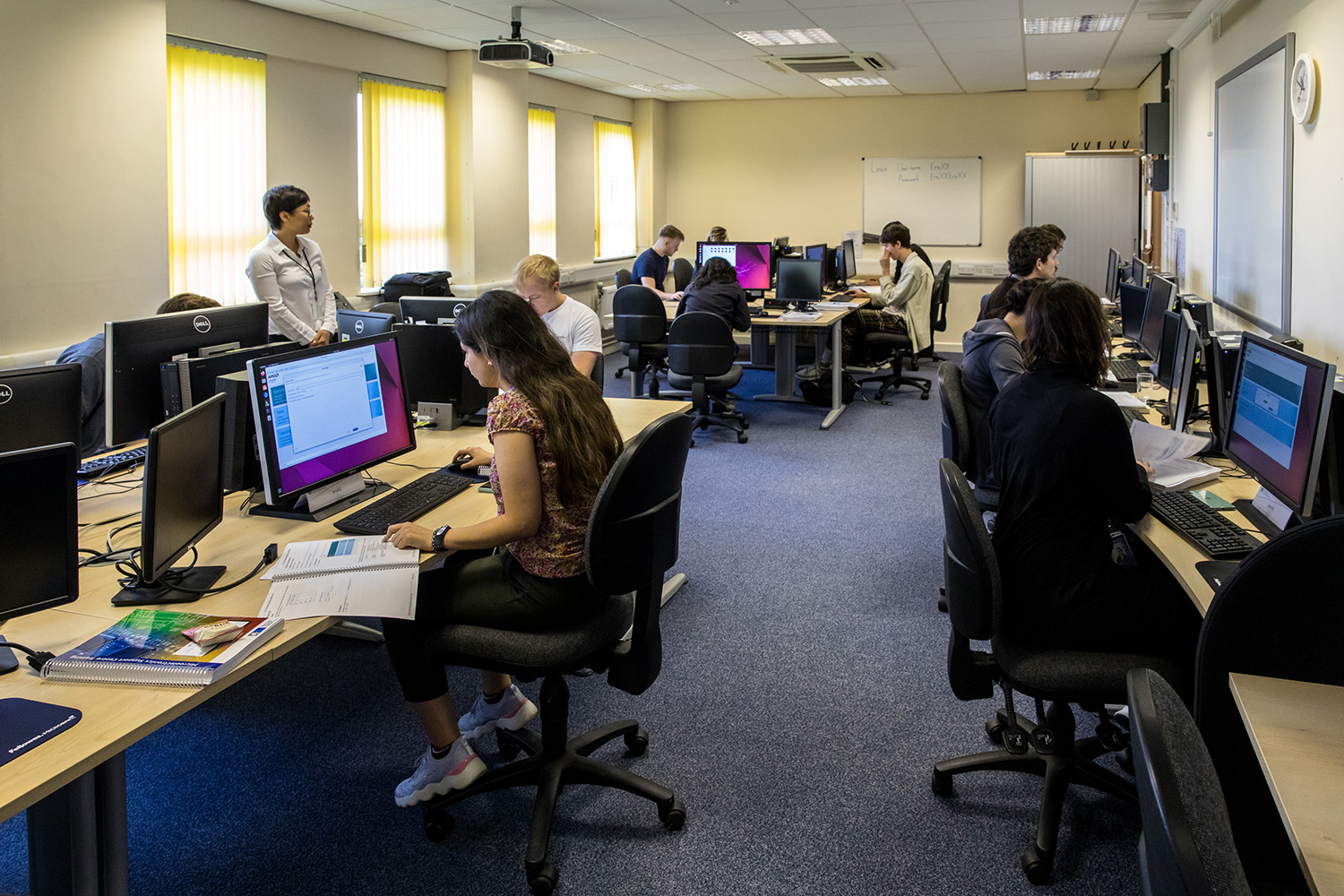
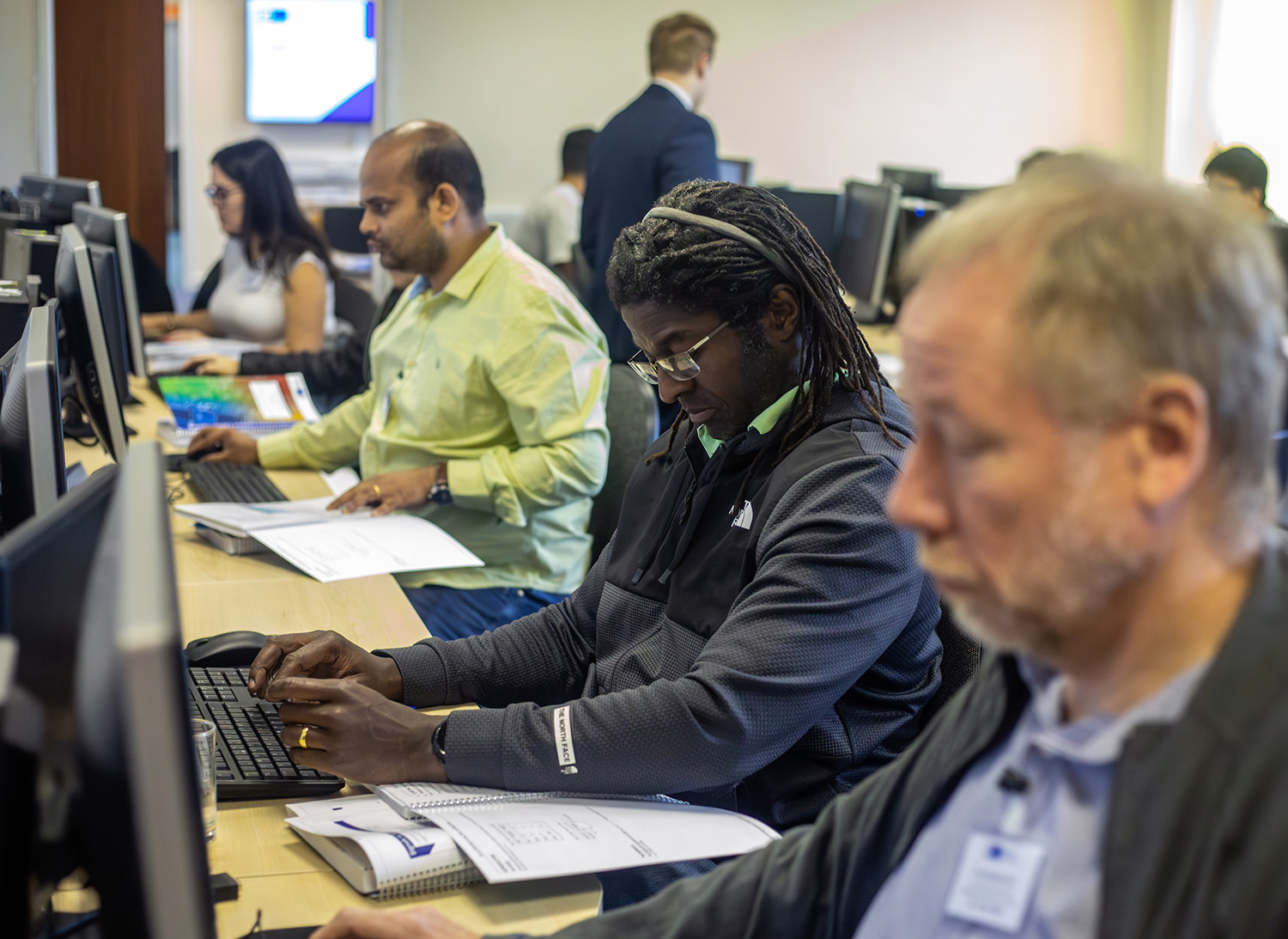
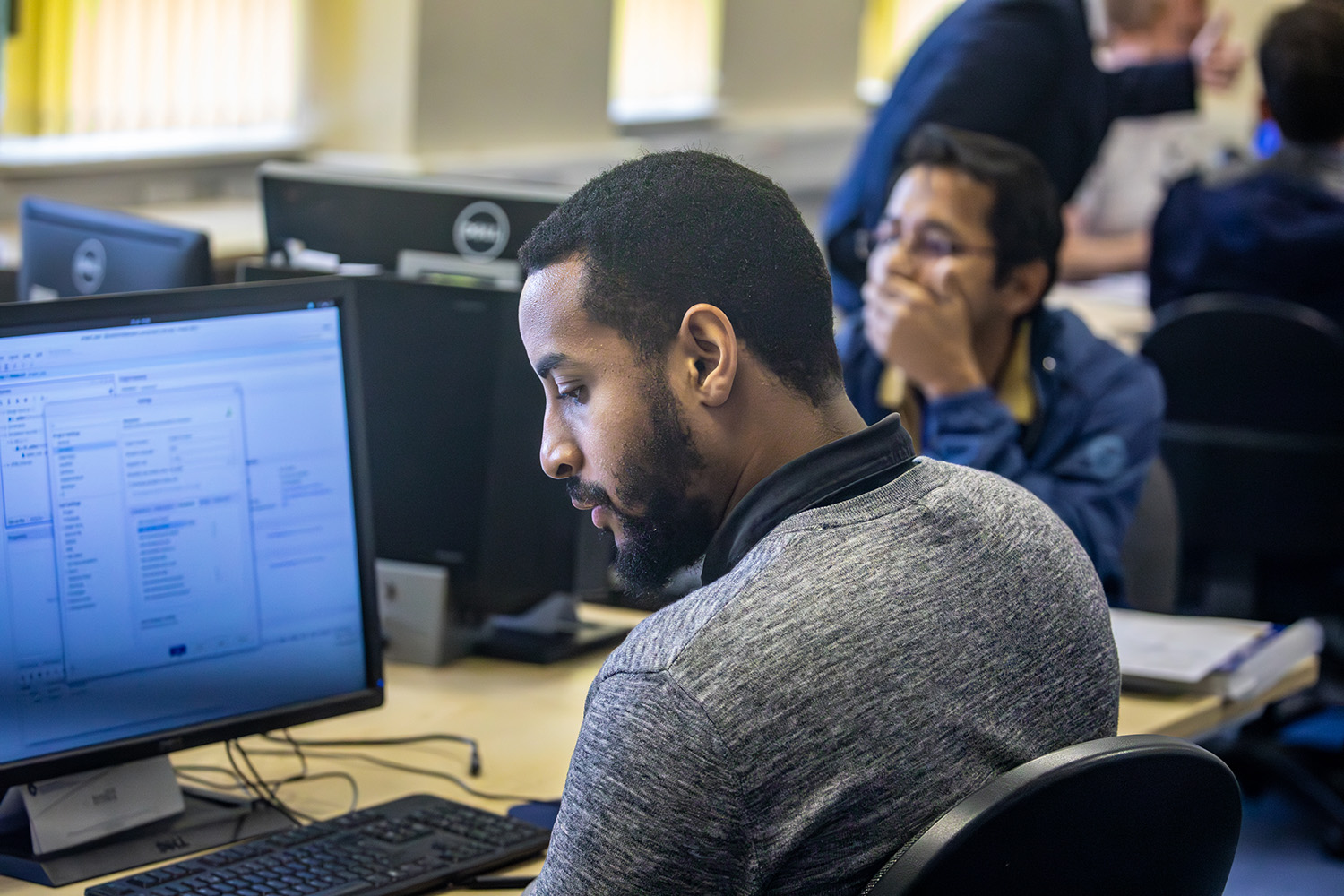
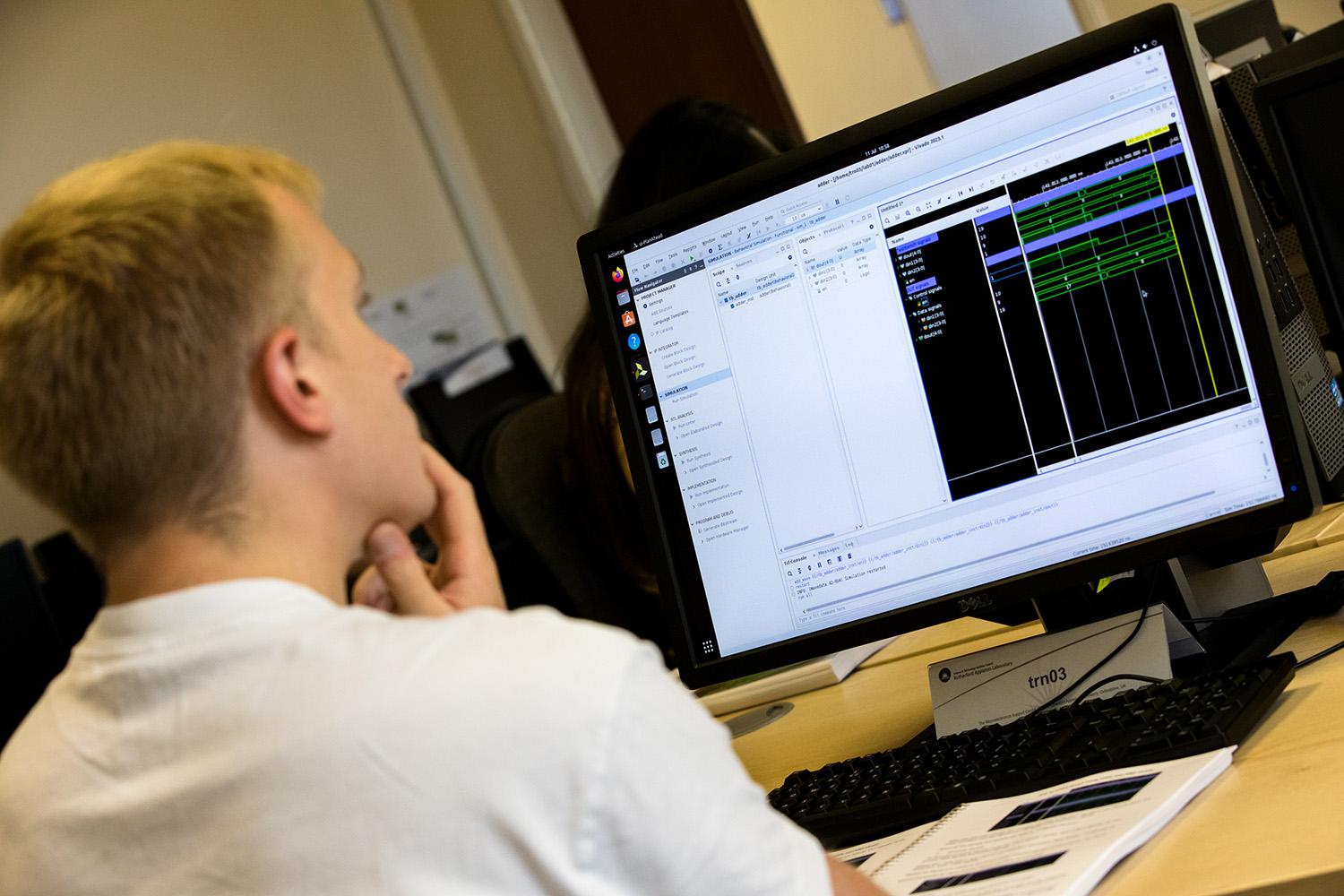 Images from the VHDL to FPGA basics summer school training at RAL - July 2023
Images from the VHDL to FPGA basics summer school training at RAL - July 2023
Dr. Anna Orlowska, Director of the STFC Technology Department, said:
“Technology Department’s Engineers, Scientists and Technicians provide essential services and expertise which underpin much of the work of STFC and the National Laboratories. This is just one example of a great collaboration between Technology, PPD and the wider UK Particle Physics community.”
The summer schools were very well received with all the delegates rating the training positively, especially the training team’s knowledge which was rated very highly. Additional comments from the delegates included:
“This is perhaps one of, if not the best course I’ve attended in terms of topic and enjoyment.”
“Really great comprehensive lecture notes. Will be a great reference in the future.”
“Big thanks to the lecturers. Clearly a huge amount of work to prepare this course.”
The National Microelectronics Support Centre supports UK and European academics in using and deploying microelectronics technology within their research and teaching. Training is an important part of this high-profile activity.
The summer schools also marked a return to in-person training following a significant period of delivering microelectronics training as live instructor-led online courses throughout the Coronavirus pandemic.
To learn more about the services the support centre provides,
visit their website.
Written by Thomas Mountney.
